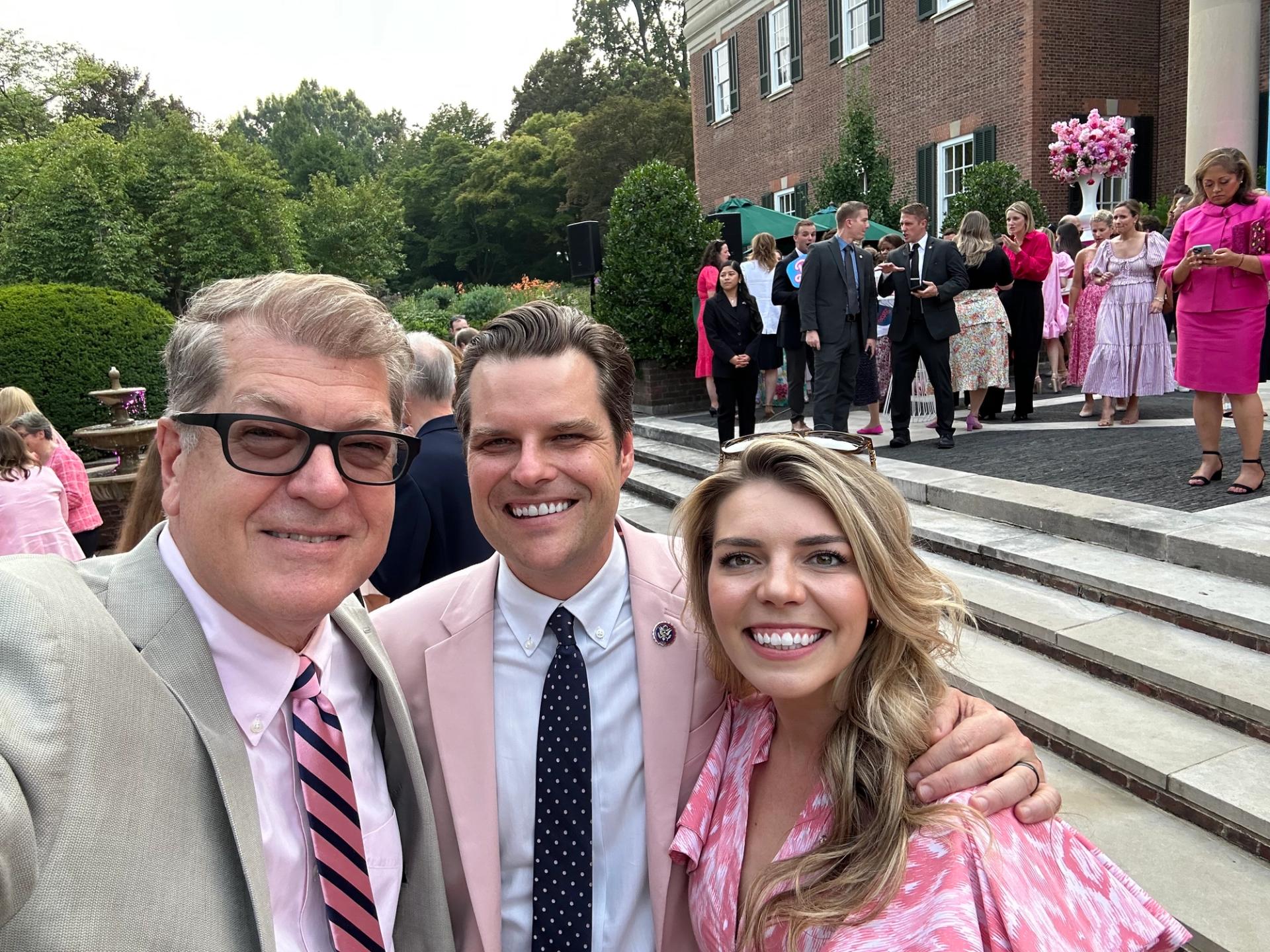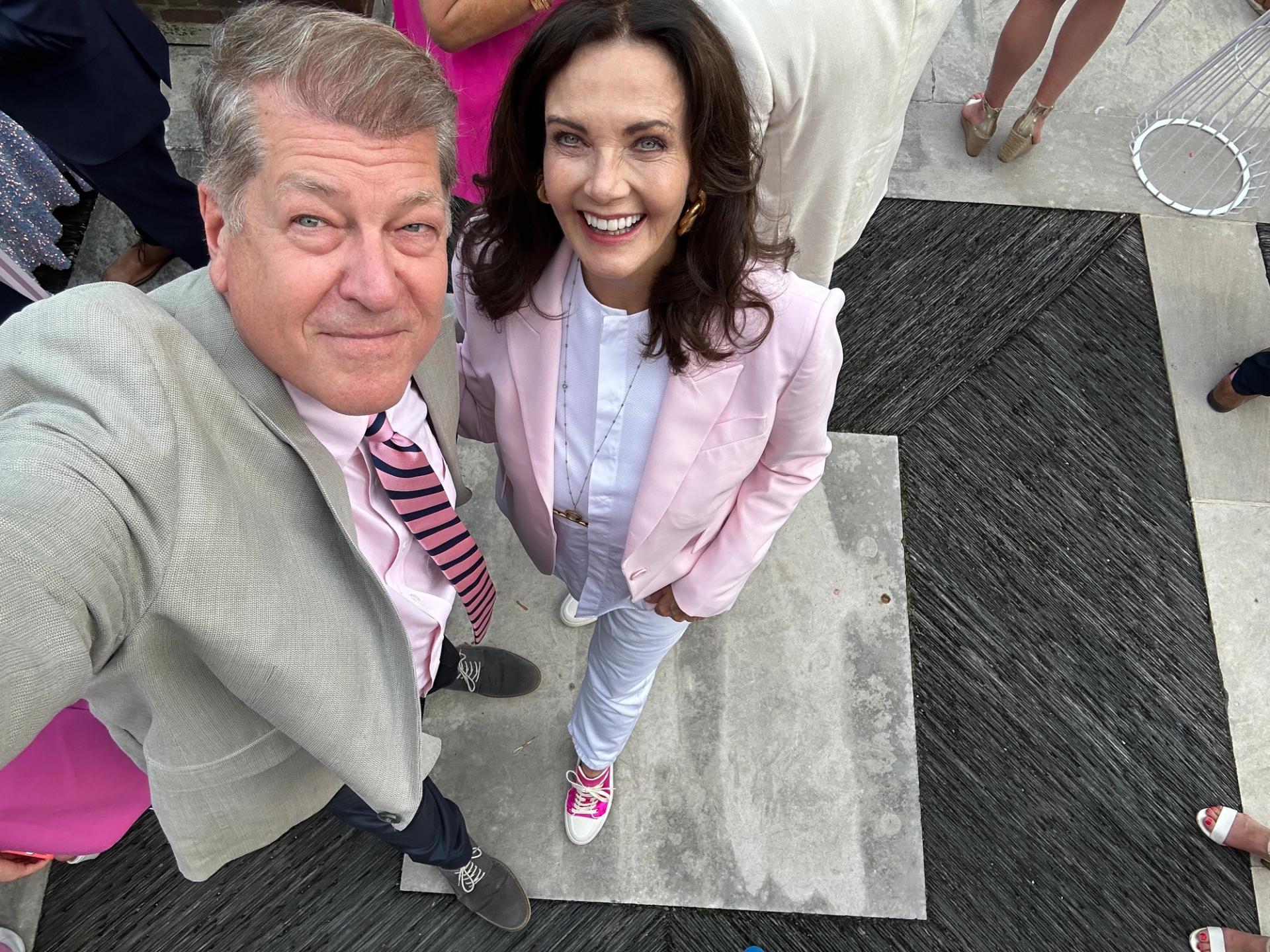Day 4
CIA Director Bill Burns stole the show Thursday afternoon at the Aspen Security Forum, even among a set of conversations that were a master class in the complexity and breadth of national security decision-making and challenges in the world today. If there is one interview today worth watching in full, it’s NPR’s Mary Louise Kelly interviewing Burns.
Burns called Wagner leader Yevgeny Prigozin’s rebellion the “most direct assault on the Russian state in Putin’s 23 years in power.” Burns said that Prigozhin exposed weaknesses in a system that Putin has built. He said it was also “remarkable that Putin felt compelled to do a deal with his former caterer.”
Burns intimated that the social contract Putin feels he has with Russians has been stressed by the Prigozhin insurrection. Prigozhin was scathing of the corruption around the Kremlin, of the core rationale for the Ukraine War, and of the bumbling leadership of national military leaders Gerasimov and Shoigu. Putin is supposed to provide security, give many Russians a share of his spoils and a place at the trough, Burns said, increase their standard of living, and protect them from external threats. In exchange the Russian public doesn’t challenge him. But with the insurrection, Burns said Russians are asking themselves why the emperor has no clothes, or at least, why it’s taking him so long to get dressed.
Burns also said that Putin believes that “revenge is a dish best served cold” and that Putin “is the ultimate apostle of payback.” Prigozhin, Burns said, should not fire his food taster.
Also in an interesting exchange, Burns said that the CIA’s first post on the popular Russian social media platform Telegram received 2.5 million views in its first week. The post gave instructions to frustrated elite Russians on how they can use the dark web to share their stories indicting Russian officials. Burns said it would be a mistake to “waste such an opportunity in intelligence” given the disaffection with Putin right now.
Burns also discussed Iran, Taiwan, Chinese hacking into the CIA’s cyber infrastructure. Amazing discussion — so watch it.
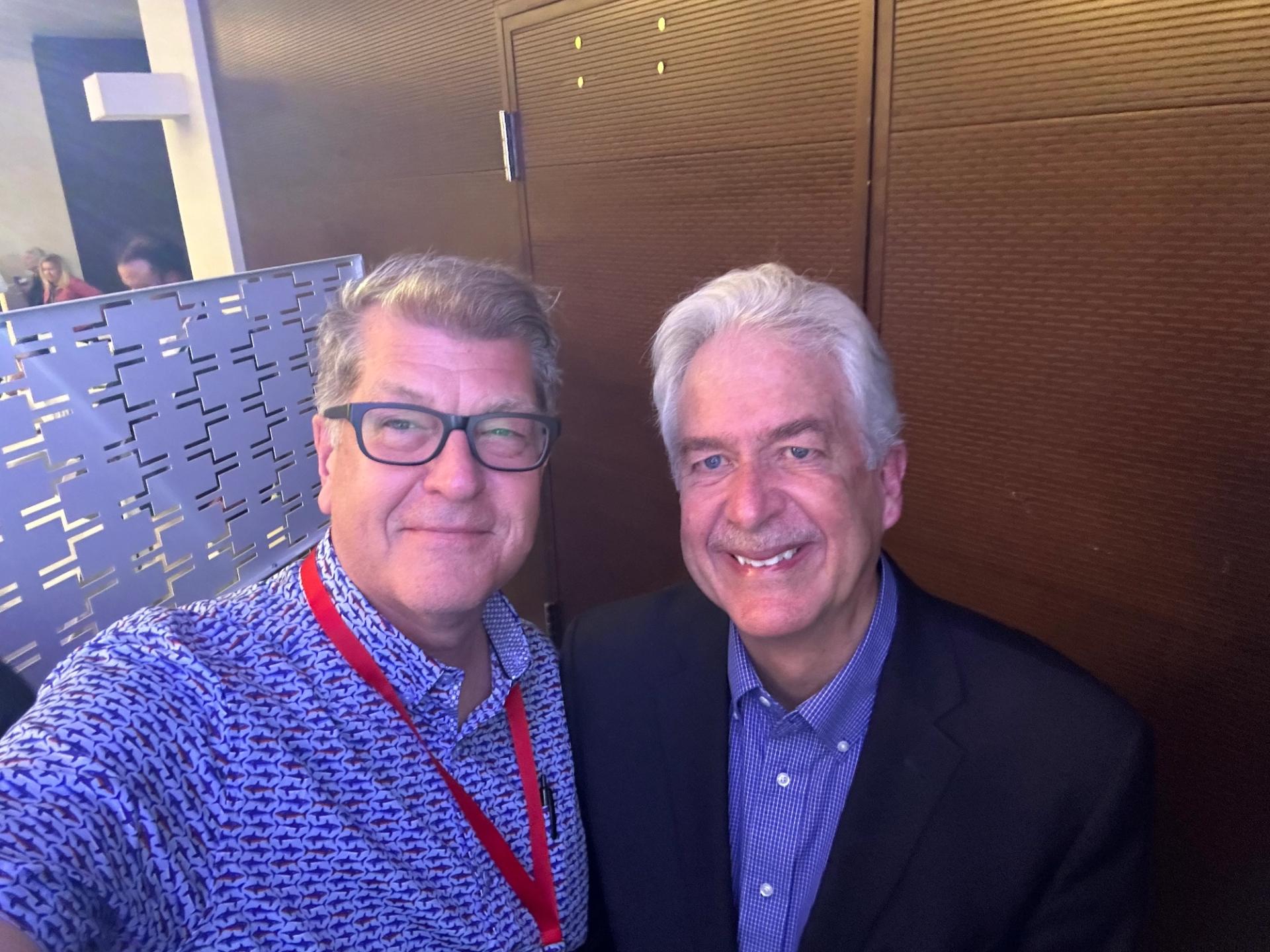
The View From Aspen
I asked the policy-makers and thinkers gathered in here what they believe to be America’s very top strategic priorities and biggest blindspots. I tried to reach out to an intellectually and topically diverse audience, and here is the roster of those perspectives
- “I think as a government and sometimes as an agency we don’t pay enough attention to the continent of Africa as we should. This is a part of the world that is only going to become more significant for American interests as the years flow by. The population of the continent of Africa is likely to double before the middle of this century. If you add to that all of the unresolved problems of food, water, health, security, the impact of climate change, unresolved regional conflicts, governance in some places, corruption, the way in which predatory players like the Wagner Group, Prigozhin’s mercenaries, try to take advantage of that. It’s a challenge we can’t afford to neglect.”
— Bill Burns, Director of the Central Intelligence Agency - “The strategic priority of the United States should be restoring confidence in the efficacy of its government to do things that matter in people’s lives whether it is educating their children, fixing the potholes in their roads, protecting the climate, or keeping them safe in a dangerous world. Until there is confidence again that government cannot just plan but execute, we are going to be in serious trouble.”
— Lawrence Summers, former Secretary of the Treasury - “It has been a good two days. Not surprisingly, the great power competition continued to dominate the agenda, particularly Russia’s invasion of Ukraine and China’s economic competition. An equally important theme was the role of new technologies ranging from outer space to cyber space, and including chip wars with China and enhancing America’s ability to innovate. Hovering over everything was the question of how these issues will be affected by the new roles of generative artificial intelligence—all grist for future security forums!
— Joseph Nye, Emeritus Dean, Harvard Kennedy School and Co—Director, Aspen Strategy Group - “An attempted coup is never a good look. There’s no way that Putin considers this as kind of as business as usual, or good news…What we’re seeing is that the first very visible cracks that are appearing on either side, was not in Ukraine, was not in NATO, was not in the EU, was not in the UK/US relationship or any of that. First cracks that we saw were in the Russian system.”
— James Cleverly, UK Secretary of State for Foreign, Commonwealth and Development Affairs - “The main weapon Putin has used against us is gas and oil. He has shown us how vulnerable the West is right now — meaning America and its allies. It’s important to invest in next generation energy technologies but it’s the fossil fuel sector that is saving us today. We have ramped up production, created new exports of LNG to allies, tried to do everything we can so that prices don’t skyrocket and with it inflation. What Putin has done with the invasion of Ukraine has really hurt America’s allies — and who is going to help us in this? This is why we needed the Inflation Reduction Act, the IRA, because China isn’t going to help us with energy and critical minerals. We have to lead on this, and we have a critical leadership role in the world that people need to understand. I want cleaner, dependable, next generation energy, but people need to know that Vladimir Putin has created a crisis today, and we need to respond.
— Senator Joe Manchin (D-WV) (Senator Manchin did not attend the Aspen Security Forum but he and I had this conversation Thursday) - “Secretary of Homeland Security Alejandro Mayorkas and CIA director Bill Burns touched briefly on the issue, but it should be a main topic: the rise of the anti-system right across the West. It is often described as a function of economic inequality or culture wars. But is it perhaps also connected to policymakers and politicians struggling with ever more intractable problems of governance (climate and technological change, social justice and inclusion, security) which put huge stress on economic models, fiscal stability, and democratic institutions?”
— Constanze Stelzenmüller, Director, Center on the United States and Europe, Brookings - “We are living the most transformative times in history. In this era of great power competition, tech revolution, and change of the economic and social models, societal resilience is our first line of defense. Second, we need to harness the innovation ecosystem of the democratic world in order to maintain our technological edge. A new balance between the role of government, the private sector and academia is indispensable for us to prevail in the arch-competition with the alternative model of fusion between state, business, and military of our competitors.”
— Mircea Geoană, Deputy Secretary General of NATO - “The U.S.-China relationship is going to be more complex to manage than any challenge we’ve faced for decades. If we are going to manage conflicts, compete effectively and cooperate where possible with China, the U.S. needs to reestablish leadership on international economic policy. That can take on various forms, but to cede the field to China to forge economic blocs and write the rules of the road of the global economy, including around digital issues, would be a strategic mistake.”
— Michael Froman, President, Council on Foreign Relations - “There are two recurring themes that struck me here. The seemingly stable authoritarian giants are far more brittle than most people thought. This was the lesson of the Wagner insurrection in Russia; less talked about but probably more important is the mounting toll of Xi’s mistakes in China. The second theme is how little confidence, despite good evidence to the contrary, there is in the future for the world’s democratic powers, starting with the U.S This means the free world probably lacks the self-confidence and clarity to exploit the weaknesses we are seeing in the authoritarian world.”
— Matt Kaminski, editor-in-chief, Politico - “We are not producing enough munitions for America’s own security. Using the example of a Lockheed Martin production line for Javelin anti-armor missiles that could produce 2,100 missiles a year while Ukraine was using 500 of the missiles a day, That’s a red flag right there. We need greater investment in arms manufacturing to meet the challenge of a belligerent Russia in Europe and a Chinese military asserting its presence in the Pacific. It’s serious stuff. I’m not out there saying the sky is falling, but we need to be focused on this.”
— Senator Deb Fischer (R-NE) (Senator Fischer did not attend the Aspen Security Forum but she and I recently had this conversation) - “Two things stood out to me: First, the inclusion of the Global South on many significant panels, and talented women panelists everywhere! Second, the point that the foreign policy elite lacks the ability to communicate with Gen Z and that AI might provide some language tools to help with this. The youth bulge in the Middle East and Africa makes this imperative to win the argument that our values and strategies are the right ones.”
— Jane Harman, former Member, US House of Representatives and former President, Wilson Center - “For the past five decades, the location of oil reserves defined geopolitics. The location of technology supply chains and where semiconductors are built will define the next five decades. The CHIPS Act promotes development of, and investment in, domestic semiconductor capabilities in order to secure U.S. national and economic security.”
— Pat Gelsinger, CEO, Intel Corporation - “We must ensure effective implementation and execution of the transformative economic competitiveness laws passed in the past year - CHIPS, Inflation Reduction Act and the Bipartisan Infrastructure Act. We also must do more to transform and modernize our workforce training system at scale to help our workers adapt, adjust and economically thrive given the speed of technological change.”
— Penny Pritzker, former Secretary of Commerce - “Unbridled and uncompromising ideology asserted by office-holders who refuse to consider principled compromise is threatening American democracy. This is particularly dangerous when foreign actors exploit these differences and divide the American people.”
— Heidi Heitkamp, former U.S. Senator (D-ND) - “The Islamic Republic is an astute student of history, which is exactly the reason why they will develop a nuclear weapon. It is their only ticket to longevity with a population that is not in favor. They have watched Libya on one side which gave up its nuclear weapons, and Qaddafi was murdered. And on the other hand, there is North Korea where the Kim dynasty has been around for six decades. And then, of course there’s Ukraine, which gave up its nuclear warhead in exchange for economic development and security guarantees, and was subsequently invaded by Russia. What came across loud and clear in the Aspen Security Forum is that there’s tremendous passion for the unity between Europe and the United States on the topic of Russia. Which is exactly why disassociation is so much more positive than anyone expected. If there was this level of unity on the Iran file, 4 1/2 decades into the Islamic republic, and a total of almost 200 sanctions since the Obama administration, Iran would not be weeks away from a nuclear weapon.”
— Goli Ameri, former Assistant Secretary of State for Educational and Cultural Affairs - “There was a big development in NZ this week. No, not (just) the Kiwis beating Norway in the FIFA World Cup, but the UK signing on to CPTPP. In a Forum understandably heavy on the tech-security nexus, let’s not forget — as Mike Froman reminded us this morning — how good trade policy and open markets can address concerns about supply chains and diversification, and how that in turn buttresses our security. A good topic for the next Forum!”
— Ambassador Bede Corry, New Zealand Ambassador to the U.S. - “As the war continues, Ukraine’s economic and social outlook is far more worrying than conditions at the front lines. The time has come for the ‘other counteroffensive’ to match the military one, designing a new Ukrainian and European recovery program that mobilizes hundreds of billions of dollars in frozen Russian assets, as international law evolves to meet this generational challenge. Unsafe AI to empower extreme new hazards to people around the world. One fast answer might adapt best practices, already rapidly evolving within the industry, into safe harbors offered by cooperating countries, leaving other companies to face strict liability for any consequences of their unsafe practices.”
— Philip Zelikow, University of Virginia and Stanford University - “1. We need to recognize that China will be a strategic competitor, but we should prioritize civil, respectful engagement with China with the intention of outcompeting China from a position of strength, not pursue a downward spiraling relationship based on trading blows from trade to technology. We must prioritize a values based China policy and leverage our values as the connective tissue that holds together and unifies the components of our policy toward China, as well as unifies our allies behind us. 2. We must prioritize our support to Ukraine around the defeat of Russia, and just around preventing the Ukrainians from losing. Russia’s warmaking capacity, and regional strategy intimidation, coercion, and conquest, must be dealt a generation-long blow. Russia must be defeated. 3. We must prioritize creating comprehensive strategies for employment of AI that create trustworthiness, explainability, safety, and accountability. We must immediately prioritize a process for accounting for the use of generative AI, with particular attention to the potential capacity to do harm.”
— General John Allen, Strategic Advisor, Microsoft; former President & CEO, Brookings Institution - “Limiting risks of serious conflict with China while protecting the interests and values of the United States and our allies. Major conflict between the two countries would be staggeringly destructive and disruptive to human prosperity, in ways most Americans can’t seriously begin to imagine. But the reality of what China all too often prioritizes, let alone the globalization of oppression and harassment of opponents of the regime, is also troubling. Renewing American economic, industrial, and knowledge creation capacity as well as democratic resilience — without creating unnecessary risk of conflict with the Chinese — is critical to preventing such conflict. We are right on track for climate disaster. I am less persuaded than even 6 months ago that the bending cost curve on renewables or new sources of financing will do the trick. The amount of investment needed yearly to execute even a partially successful energy transition (7.5 percent of global GDP or thereabouts for 25 years, or about $275 trillion total) is not on track to naturalize. We will suffer quite a bit, but the Middle East, Sub-Saharan Africa, South Asia, and much of Latin America will be devastated by emissions they didn’t produce. There is no loss and damage or similar bargain in the works. AI progress is not set to slow down. It will almost certainly speed up, democratizing and eventually commodifying intelligence. 10x more advanced models than GPT-4 are coming in about a year, and 100x models in a few years. We are not prepared.”
— Mariano-Florentino “Tino” Cuéllar, President, Carnegie Endowment for International Peace - “As Condi Rice told us in the context of education being a national security issue — ‘our biggest adversary is us.’ Our speakers highlighted this theme in many of our sessions at the Aspen Security Forum: as the United States, we CAN and must come together to, for example, (a) work towards a nuanced policy towards China, (b) create thoughtful, rational regulation for artificial intelligence — and (c) the bipartisan work the US Senate is doing is an example of this and the way we are coming together to shore up our innovation ecosystem.”
— Anja Manuel, Executive Director, Aspen Security Forum - “Policymakers have more questions than answers on AI — and that’s actually a good thing. Humility, deliberation, and technical expertise will help us get these policy questions right over time. The future of our education pipeline — and innovative ideas for dramatically improving student outcomes - also needs to be on our collective agenda; it’s clear that the national security community is reckoning with the long term competitiveness and security implications of faltering STEM student performance and how their voices can help.
— Dan Correa, CEO, Federation of American Scientists
Day 3: Among the optimists
Exotic destination conferences about meta topics like national security draw optimists far more than pessimists, and they tend to be like-minded about wanting to achieve progressive goals like slowing climate change, standing up for human rights, or changing the dynamics of injustice.
The Aspen Security Forum Thursday had many compelling sessions dedicated to addressing global problems, and I moderated three of them. One of these was with Intel CEO Pat Gelsinger, a deeply religious man who is tasked with reversing America’s flagging status as the world’s vital anchor of advanced semiconductor development. (He handed me a small chip that has more than 440 billion circuits in it.) We talked about the CHIPS Act with former Secretary of Commerce Penny Pritzker who helped lay the groundwork a decade ago for a number of competitiveness projects. A decade ago, she looked over the horizon, the theme of this year’s conference, and saw the incremental disappearance of chip manufacturing from the U.S. She got on it - and flogged for more science and tech investments by the government, better work training programs, and other tech-supporting initiatives. Today, Gina Raimondo is commanding the building and team that Pritzker helped create to reverse the decline of America’s competitive tech edge.
Speaking of America’s edge: I also moderated a panel on evolving trends in the Middle East with four fascinating, powerful women — Dina Powell McCormick, Goli Ameri, Farah Pandith, and Tzip Livni. All said they were worried about America’s brand in the region, where each has played high-profile roles, Livni for Israel and the others for the U.S. government. Israel, Jordan, the Saudis, UAE, and other Middle Eastern would like America’s democracy to, at the very least, look less dysfunctional.
And then I interviewed Chinese Ambassador to the US Xie Feng in his first extensive interview since arriving in America. You can read, and watch, the whole thing here. I asked Xie what, given China’s no limits relationship with Russia, he sees as the most redeeming qualities in Vladimir Putin. The Ambassador quickly said that he remembered George W. Bush looking into the eyes of Putin and seeing his soul and someone he could trust, and Ambassador Xie then broke into laughter. The audience was riveted to his answers on a lot of topics, in part because questions about China are key to nearly every major global issue America is dealing with.
Some of the most compelling conversations at Aspen, however, happen on the sidelines, where even at an exclusive conference, we line up for yet-more-exclusive events. The line at the door, Studio 54 style, is part of the mystique.. At a Google reception, an array of A-listers talked about the impact of AI and Quantum, about Ukraine and NATO, and about ongoing speculation about the disappearance of Chinese Foreign Minister Qin Gang. (Xie told me to “wait and see”). Homeland Security Secretary Alejandro Mayorkas is in Aspen too, and his thoughts were eye-opening — but off-the-record.
Mayorkas will be among the headliners tomorrow, along with CIA Director Bill Burns and Microsoft President Brad Smith.
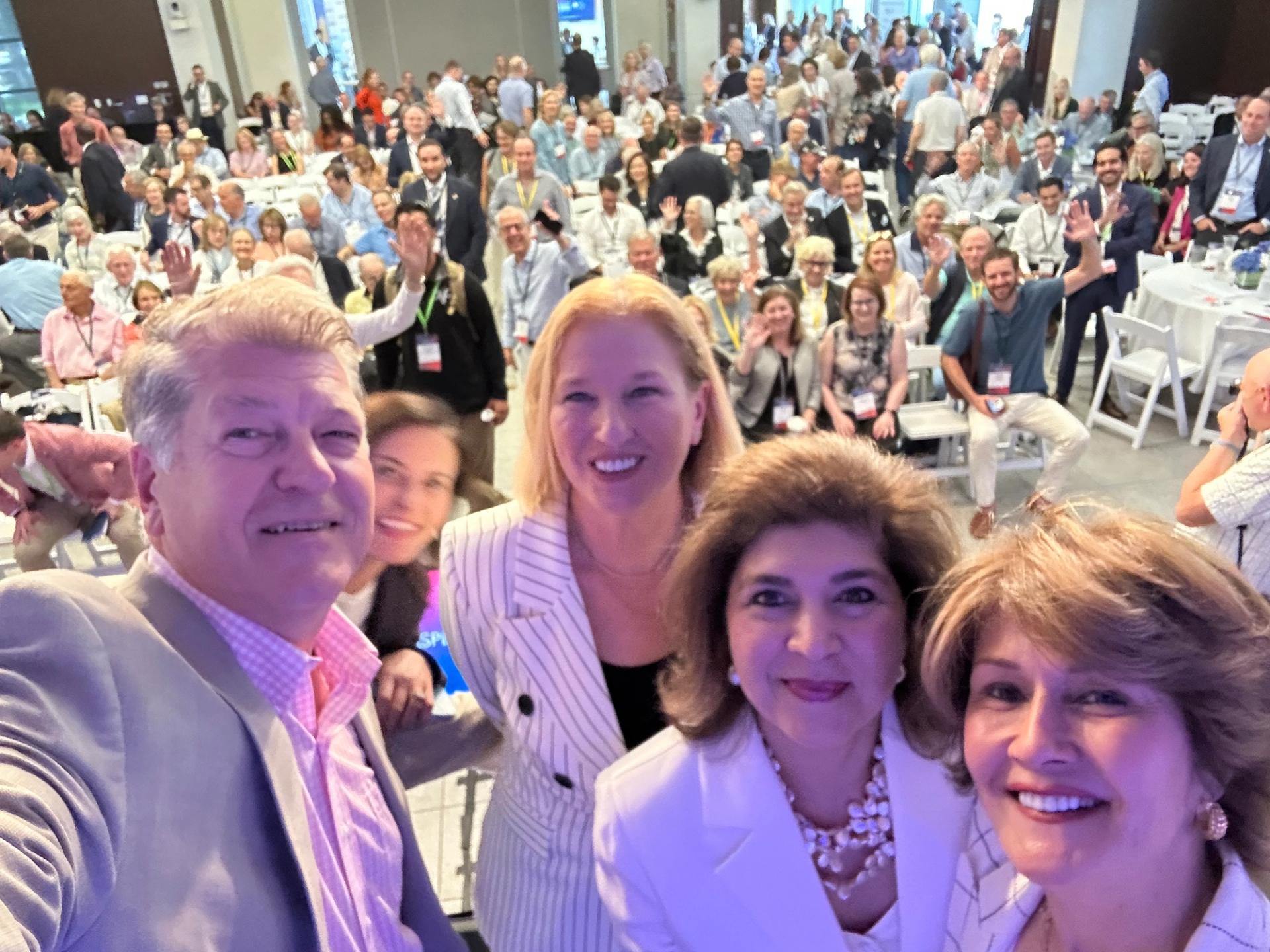
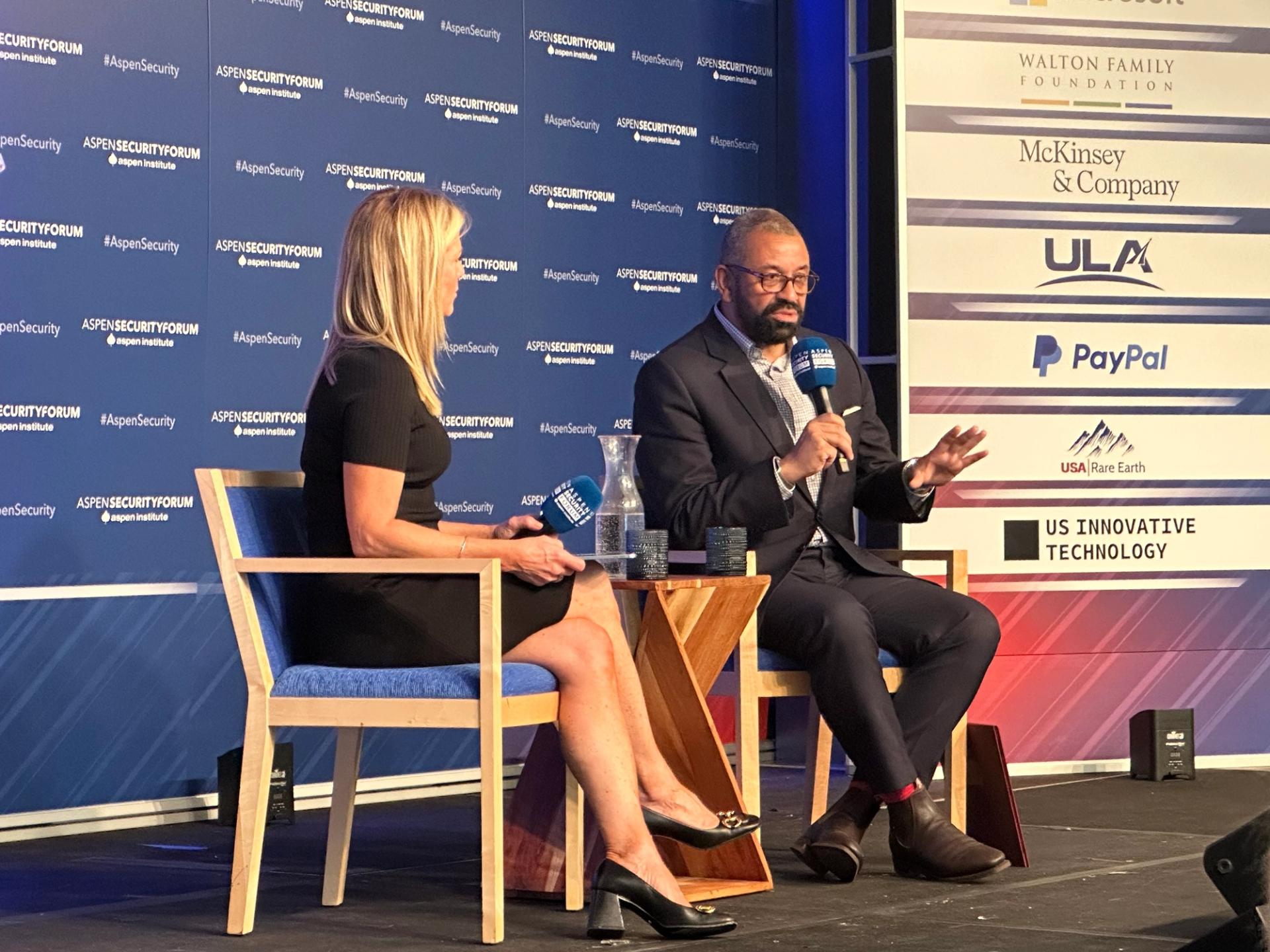
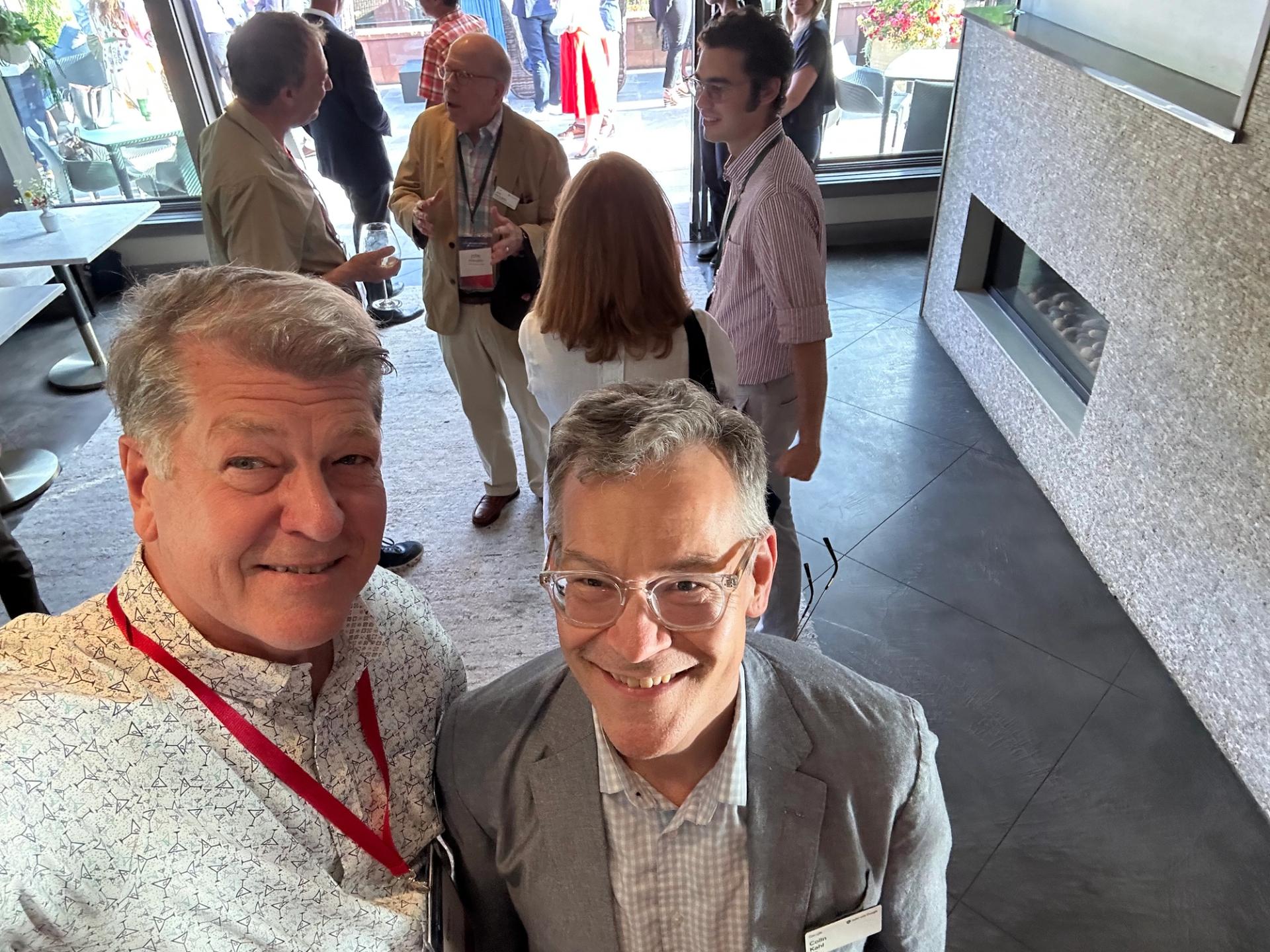
Day 2: China, China, China
The former acting Acting Director of Central Intelligence, John McLaughlin, mesmerized the moderators and speakers and big donors and special guests of the Aspen Security Forum with a disturbingly excellent magic show Tuesday. “Merlin” McLaughlin’s sleight of hand with ball, rope, and cards humbled the jaded, hyper-rational national security audience at former Democratic Congresswoman Jane Harman’s magnificent Aspen mountainside home. They included British Foreign Secretary James Cleverly, French National Security Advisor Emmanuel Bonne, US Ambassador to the United Nations Linda Thomas-Greenfield, Intel CEO Pat Gelsinger, billionaire businesswoman and former Secretary of Commerce Penny Pritzker, Kenyan National Security Advisor Monica Juma, and many others VIPs.
I start with this vignette of the evening because McLaughlin’s performance was the only time today when China wasn’t mentioned. I think it’s important for know-it-alls to be reminded that they don’t actually know it all, and in a backhanded way, McLaughlin’s lesson was apt tonight and reminded generals and admirals, diplomats, foreign policy wonks and journalists to beware of bias and their own certainty about things.
On stage earlier, however, China simmered in every interview and presentation. Aspen Security Forum Executive Director Anja Manuel opened the forum saying that “we are meeting here at a dangerous time for foreign policy, when war between great powers seems dangerously real and possible.” She then said some great powers were “acting badly” and then named those powers, “China and Russia.”
In the first interview of the day, NBC’s Courtney Kube pushed US-Indo Pacific Command chief Admiral John Aquillino to outline how much of a threat China represents on his strategic dashboard. He answered that China pretty much dominates his problem list. He said he took Xi Jinping at his word when the Chinese leader told his command staff to be prepared to take Taiwan by force by 2027. Aquillino, a graduate of the Top Gun air fighter school, said that he works hard every day to keep China from getting what it wants in the region.
Second up was Juma, the National Security Advisor to the president of Kenya, in conversation with the BBC’s Sarah Smith. China came up in that riveting conversation too, with Smith saying that it seemed “nakedly obvious” that a lot of America’s new found interest in Africa is in order to compete with China’s growing economic footprint and ties with African states. Juma pushed back, saying the U.S. had had a long relationship with the African continent. She said that while China had invested heavily in the region, the major debt loads that many countries have with China, including Kenya, are getting them to explore alternatives to Chinese debt financing.
Finally, NBC’s Andrea Mitchell pushed US Ambassador to the UN Linda Thomas-Greenfield on how America and China are squaring off over big issues at the UN. Thomas-Greenfield didn’t demonize China, but did share with me that there’s a relentlessness in the Chinese focus on their interests, and a disregard for what “rules of the road” really mean when those interests collide with international law.
The three interviews thus far in the program are well worth watching and cover a great number of other topics -- but it is interesting that the topic of China runs through them all, or did so today. I will be interviewing Chinese Ambassador to the US Xie Feng today, and I’ll get his response to a number of these concerns. Here is the full schedule -- and yep, I’ll also be moderating sessions on the Middle East and America’s CHIPS gambit.
I need to mention another thing that just hit me in the gut on a personal level. Manuel, the executive director of the Aspen Security Forum and a business partner of Condi Rice, Bob Gates, and Stephen Hadley, opened the forum referring to French freedom fighter and philosopher Marc Bloch’s criticism of French officials who thought they were safe because of the Maginot Line. The Nazis worked around the barrier, and Bloch wrote that the French establishment “had a lack of imagination. They were incapable of thinking in terms of a new war.” Manuel called on the group to heed his warning, and imagine what could come, and to look over the horizon.
Bloch was one of the Jewish intellectuals who the Rockefeller Foundation tried to save as the Nazis rose to power. At that time, some thinkers and doers at Rockefeller, which at that time was focused on building global public health networks, believed that many top intellectuals were in real danger. Rockefeller saved many lives with US and Canadian visas and professorships. Bloch got a visa but he wouldn’t leave France without his entire family, including six children. He was caught and executed by firing squad in 1944.
I mention the deeper story of Marc Bloch, which I wrote about in 2014 for The Atlantic, because war and peace — and thinking through the roles of villains and heroes — can and should be uncomfortable. It’s easy to fall into groupthink on conflicts like Ukraine and countries like China, Russia and Iran at a place like the Aspen Security Forum. But the reference of a murdered Jewish intellectual who warns leaders to be more imaginative and a former CIA Director who entertains but reminds people they really don’t know it all are a good start and end to the first day of this forum.
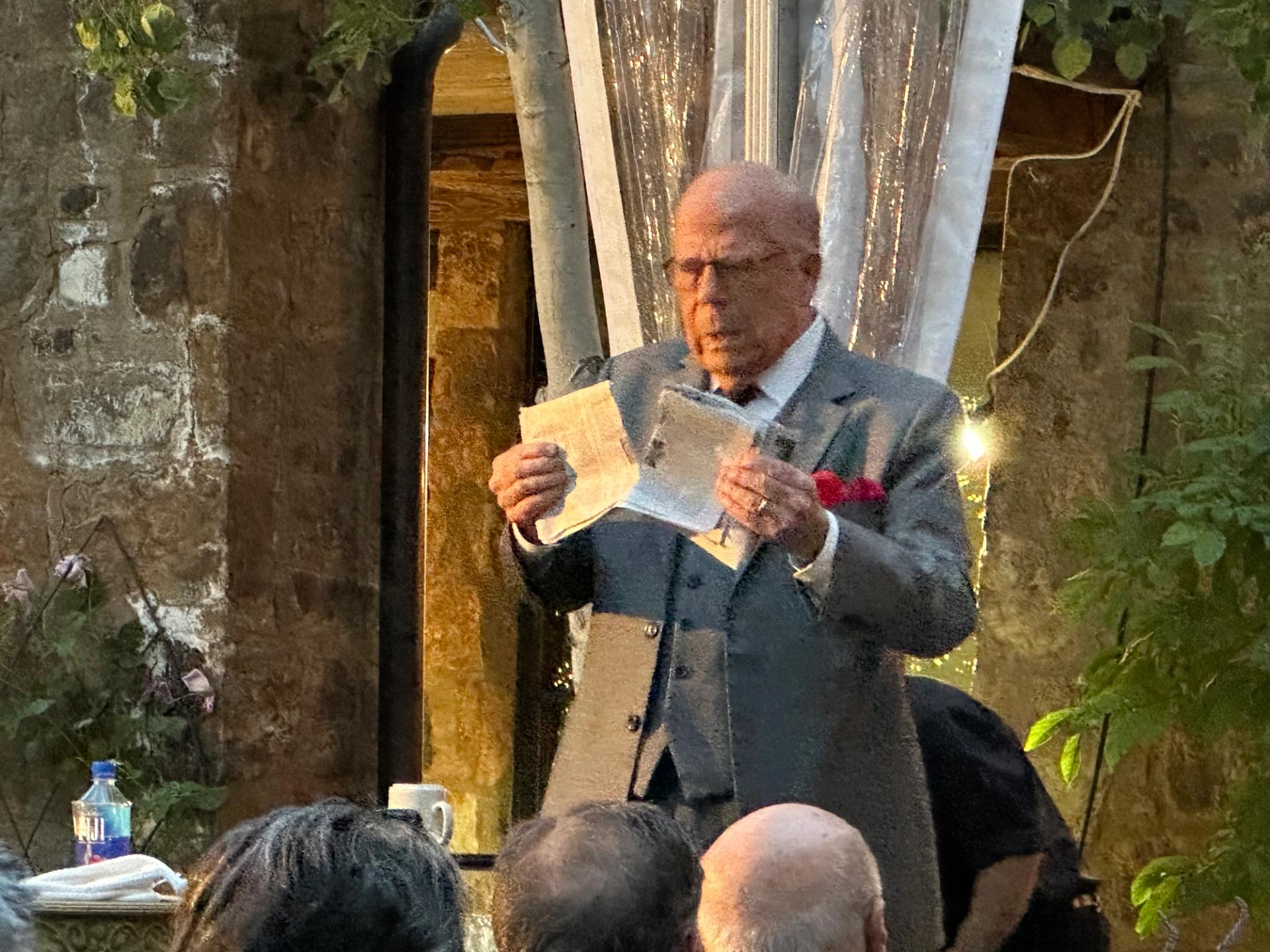
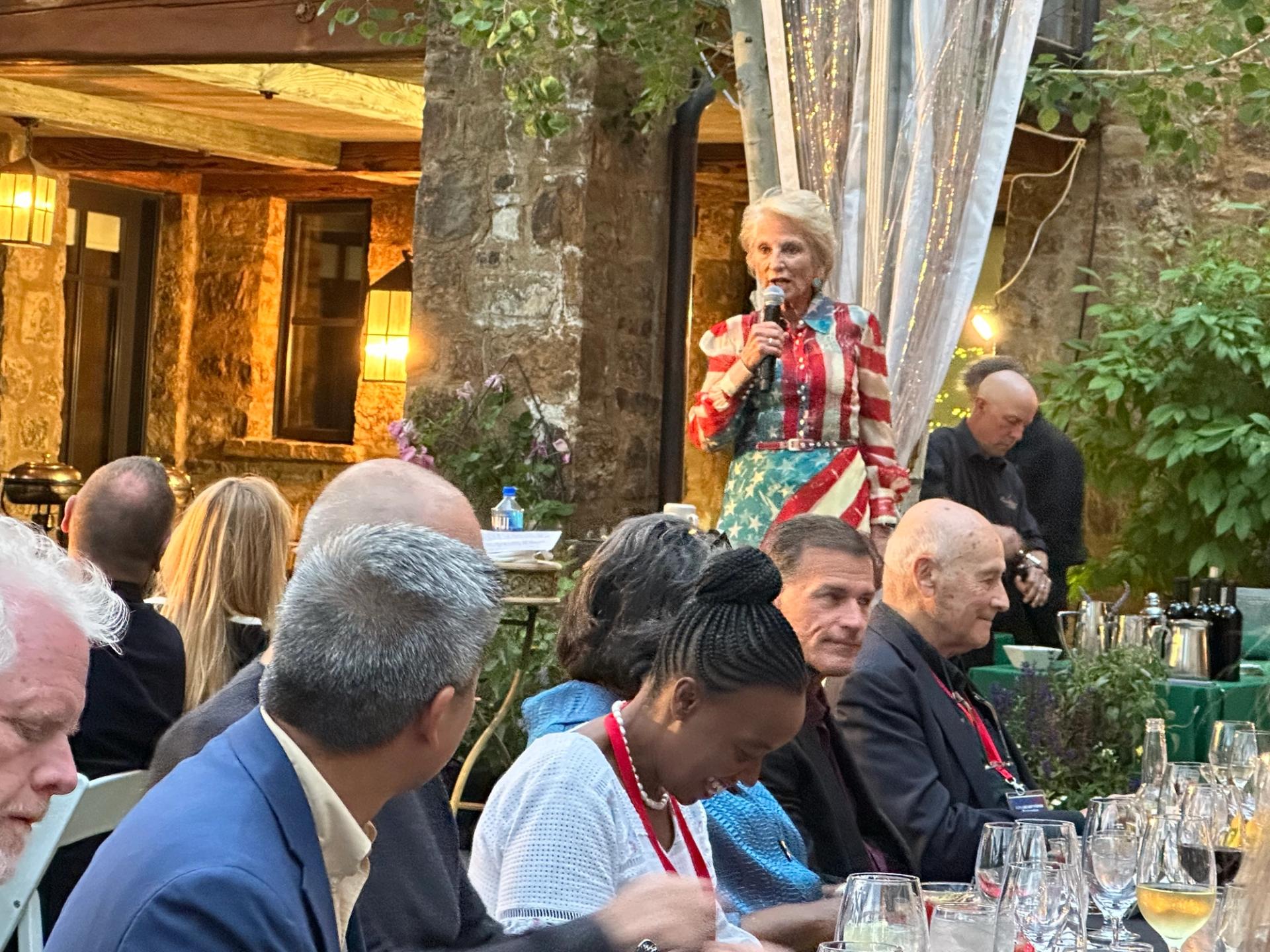
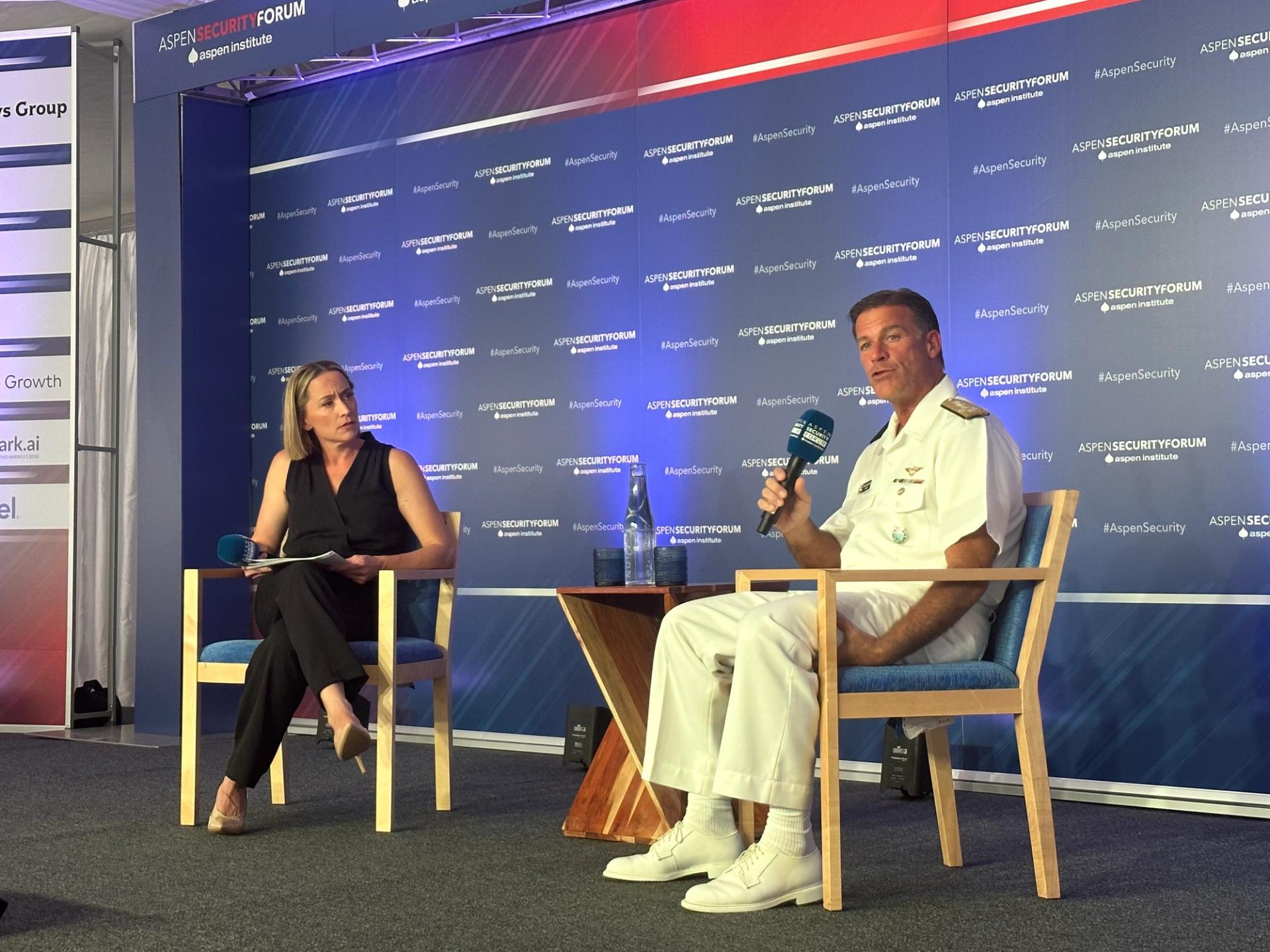
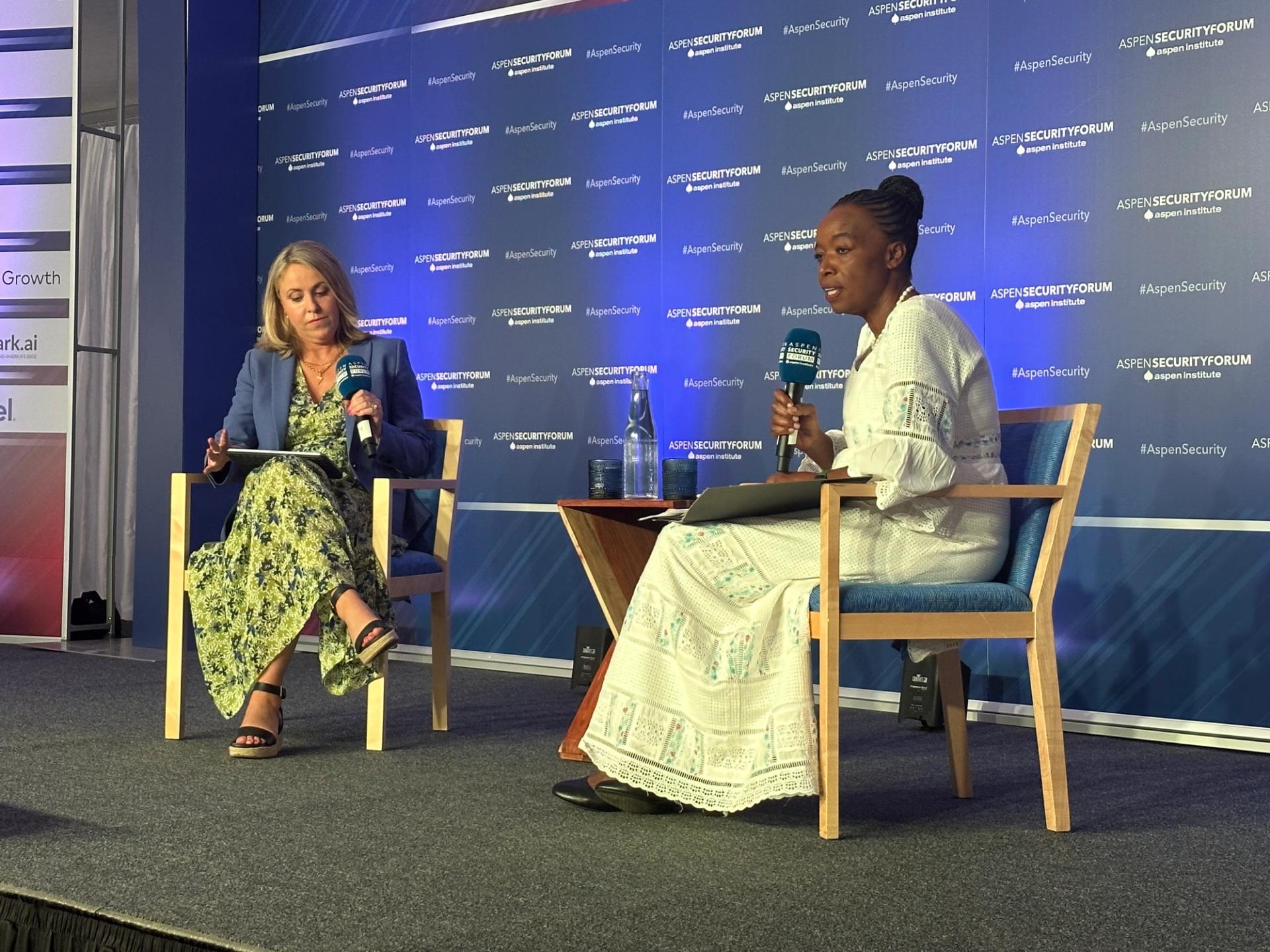
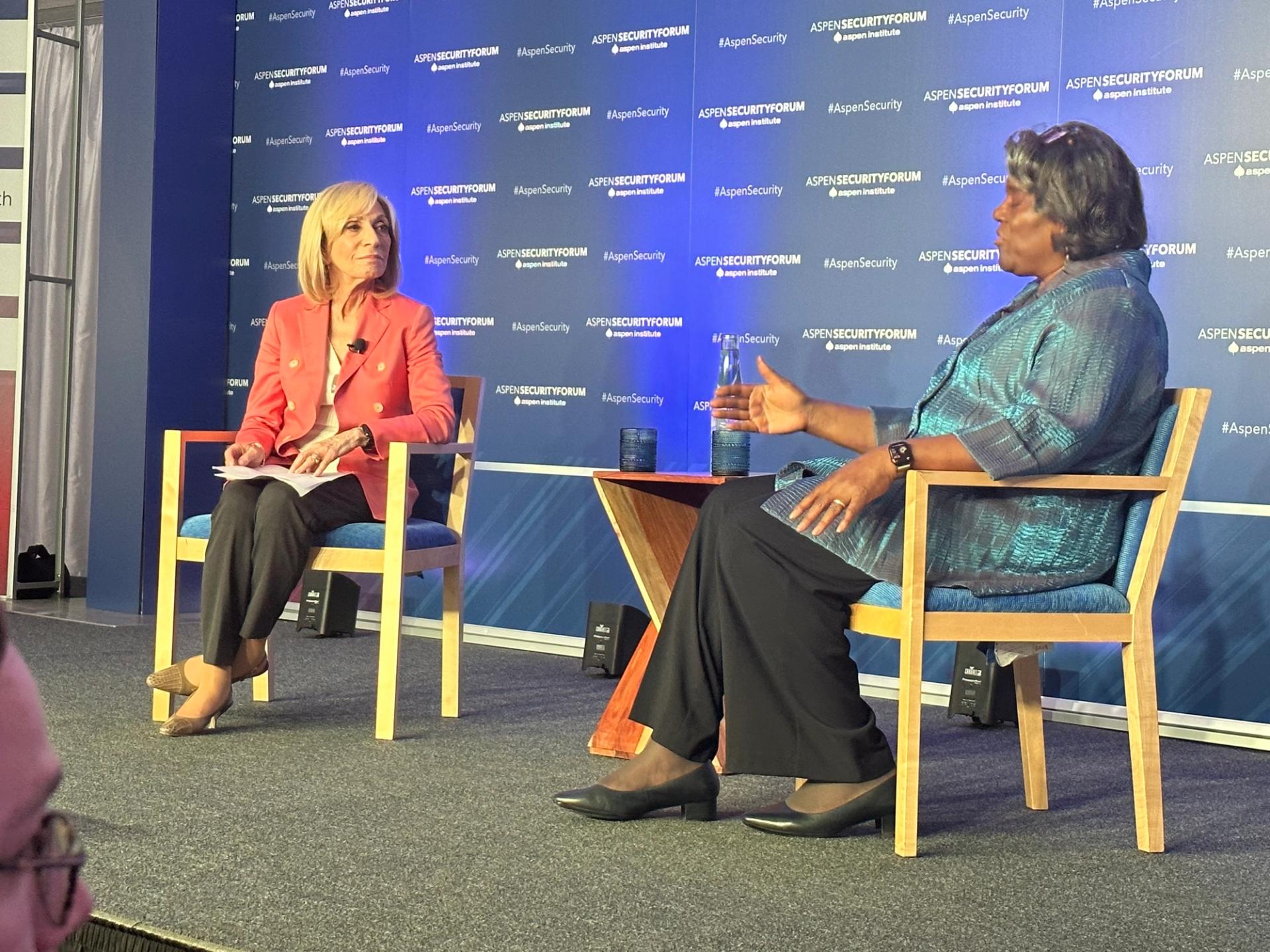
Day 1: Soft power, in Barbie pink

The Aspen Security Forum gets going this evening, when the Emeritus Dean of the Harvard Kennedy School Joseph Nye helps open the four days of national security wonkery at a reception high up in the Rocky Mountains. Nye is a perfect opener, as he popularized the notion of “soft power” back in the late 1980s.
The Aspen pre-party last night in Washington was a soft power affair, as many who were soon heading to the forum followed directions to don pink shoes, socks, ties, dresses, sports jackets and more at British Ambassador Karen Pierce’s in advance of the premiere of the movie Barbie Friday. I wondered whether a live action film featuring Barbie and Ken is what Nye had in mind when he described American soft power that works to co-opt other nations, rather than coerce them. While the film has its limits — Vietnam has banned it because it features a goofy map that appears to give China sovereignty over the South China Sea — maybe the Barbie will create some opportunities. Tomorrow in Aspen, I’ll be interviewing the new Chinese Ambassador to the US Xie Feng. Along with the hard power questions, I’ll ask whether Greta Gerwig’s subversive bubblegum heroine will be seen as friend or foe when she hits Chinese theaters.
In the meantime, hard power was on principals minds’ amidst all the pink. I chatted with Senator Deb Fischer, R-Neb., who has been worried about the declining level of America’s artillery munitions because of huge shipments to Ukraine and production that hasn’t kept up with demand. Senator Fischer, a member of the Armed Services Committee, noted to me that President Biden had finally admitted on July 9th that America is running low in its munitions reserves, which she believes creates a serious strategic vulnerability for the U.S. A hard power issue emerged in a soft power evening, on the eve of the Aspen strategy forum.
I’m on my way to the Rockies Tuesday morning, so stay tuned for this daily diary of the national security ideas, big and small, and the people behind them, gathered in the Aspen.

